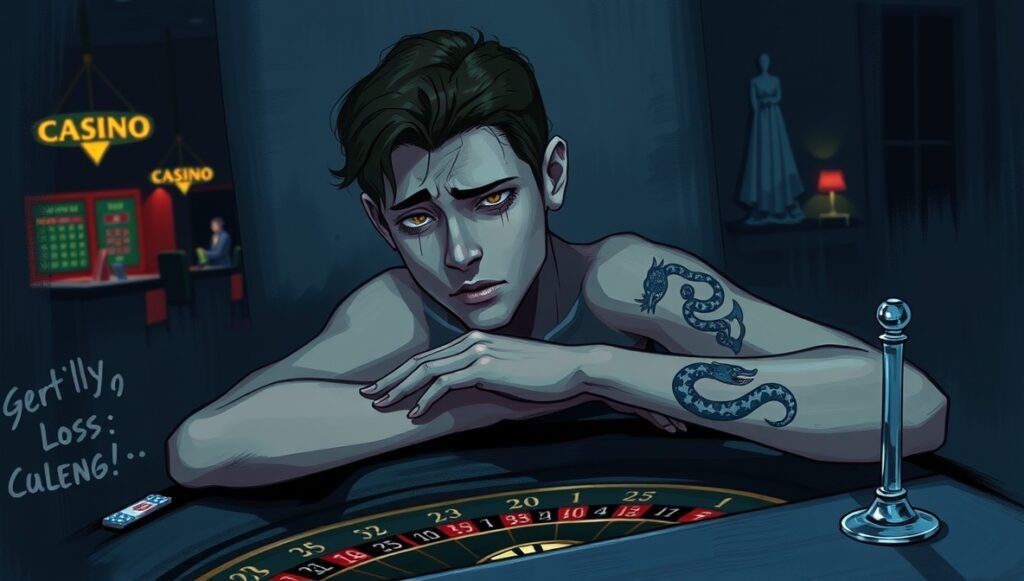
Roulette—whether experienced in digital formats like CS2 skin roulettes or in real casinos—can evoke powerful psychological responses, especially amid streaks of losses. The visceral highs of near-misses and the deep lows of continual defeat affect more than just your wallet; they can influence mood, self-worth, cognition, and even future behaviors. Understanding these effects is essential for anyone who participates in gambling or games of chance. This article explores the emotional and psychological consequences of losing in roulettes, how they manifest, and actionable steps to maintain mental well-being while engaging in such games.
Core Psychological Impacts of Roulette Losses
- Frustration and Anger: Repeated losses, especially after “just-missed” spins or long unlucky streaks, often spark feelings of irritation and resentment toward the game or oneself.
- Despair and Learned Helplessness: Chronic failure can foster a sense of hopelessness, creating the belief that future success is impossible and that outcomes are uncontrollable.
- Tilt and Impulse Control Loss: The urge to chase losses (known as “tilt”) leads to impulsive bets, reckless decisions, and an unwillingness to walk away—often increasing financial damage.
- Distorted Cognition: Players may fall prey to the “gambler’s fallacy”—the belief that a win is “due” after so many losses—fueling continued risky play.
- Stress and Anxiety: Significant losses can result in heightened stress and even anxiety attacks, as worries grow about wasted money, time, and reputation.
- Reduced Self-Esteem: Failing to win—or, worse, losing large amounts—can produce guilt, shame, and diminished self-worth, particularly if losses are hidden from friends and family.
- Desensitization: Over time, the emotional impact may dull; players may need to wager more to feel the same thrill, risking larger sums for reduced satisfaction.
Why These Effects Are So Powerful
- Random Rewards and Near-Misses: Roulettes are designed around unpredictability. Near-wins and close losses release dopamine almost like actual wins, reinforcing play despite negative outcomes.
- Expectation vs. Reality: Optimism bias convinces players that they can “get it back,” making losses feel particularly crushing when reality fails to meet expectation.
- Social and Peer Pressure: In online roulette communities or when playing with friends, losing in public—especially after boasting or sharing results—can intensify embarrassment or shame.
- Escalating Commitment: Losses trigger increased bets under the illusion of “just one more try,” deepening psychological entanglement and financial loss.
Long-Term Risks of Repeated Roulette Losses
- Increased risk of gambling addiction or problem gambling.
- Chronic stress, sleep disturbances, and mental health decline.
- Financial issues causing further psychological distress, relationship conflict, or isolation.
- Potential for comorbid issues: depression, substance abuse, and anxiety disorders.
How to Recognize and Manage the Effects
- Monitor emotional state after sessions: If anger, guilt, or stress lingers, take a break or reassess your habits.
- Keep a gambling diary, noting wins, losses, and mood changes to spot unhealthy patterns early.
- Set hard limits for spending and time—never gamble with money designated for essentials.
- Establish clear “stop-loss” rules; leave the game after a set loss, regardless of urges.
- Talk openly with trusted friends or seek support from gambling-help communities.
- Focus on the entertainment aspect, not profit; avoid using roulette as an escape from stress or sadness.
Losing in roulettes can stir powerful psychological responses—from anger and despair to riskier gambling. These effects are rooted in the game’s randomness and the human brain’s reward system. Acknowledging and understanding these feelings is the first step to staying in control.
If you notice recurring stress, frustration, or urges to chase losses, step away, set stricter limits, and seek external support. For a more protected experience, choose reputable platforms and always prioritize mental well-being above all.





